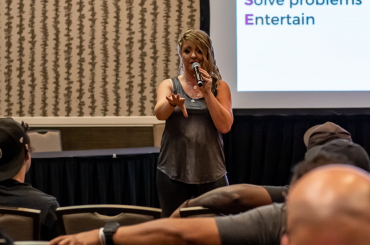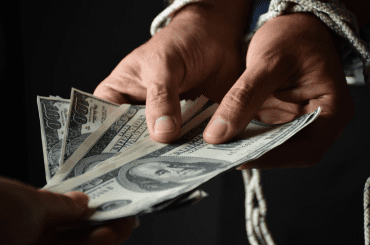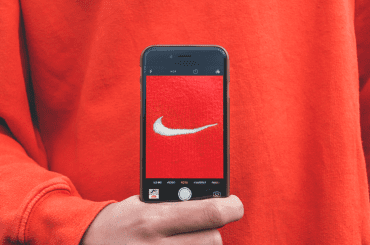When a bride named Susan called DJ Shani Barnett in Northbrook, Ill., this past March to book entertainment for her forthcoming wedding reception, it was because Barnett had been highly recommended by the venue.
But when Shani informed Susan of her company’s prices, there were concerns.
“When I quoted our basic wedding package, Susan asked if that was the best I can do—because her friend had given her the name of a DJ whose price was a lot cheaper,” she says.
“I asked her if the other DJ was on the preferred-vendor list and she said no. I asked her if she knew the other DJ and she said no. Trying not to laugh, I told her I have no problem meeting with her and her fiancé to explain why my price is what it is, but she asked again if I could do any better with my price.
“If a potential client only wants to book on price alone, then I’m sorry we are not the DJ company for her.”
Everyone is wondering about the current economy. Unemployment is down and other economic indicators remain good for the moment, but should we be worried about interest rates rising? What about gas prices?
In a similar way, every year mobile DJs must make a decision about raising their rates due to increased costs. Raise our prices too much and we lose business. Reduce them too much and we lose income.
We asked DJs from around the country how they’re dealing with prices in 2016. Who has raised their rates? What kind of response did they receive from their prospective clients? And finally, how have our competitors responded to our price-rising?
Barnett says that, although Shani Barnett Productions didn’t raise its package pricing in 2016, it did increase the prices of most of its upsells by at least 10-percent, and plan to increase its overall pricing in 2017.
“Most of our clients don’t come to us because of price,” Barnett says. “They come to us because of our talent and customer service, so we haven’t had a lot of negative feedback from our prices. If a client wants to only spend a certain amount of extra money after the initial package is booked, I’ll simply find the best upsells that’ll fit the party’s needs.
“Whenever I receive the phone calls in which a potential client says, ‘Well, I got a better a price quote from another company, so can you give me a discount?’ my response is always that my price is my price, and if someone is just shopping on price—and not any other factor—then good luck with your event with that other company.”
Up in Gorham, Maine, David Dionne of Dionne Entertainment says his company has not raised prices at all this year, due to the amount competition. But at the same time, neither have they reduced prices.
“I’ve judged that the appropriate mechanism for achieving this is to keep my price structure the same until 2017,” says Dionne, “though since some of my primary competitors may read your story, I can’t go into more detail.”
Jay Friest of Signature Sounds in Bristol, R.I., says his company charges an event minimum on prime days to ensure that income is maximized for the limited number of dates they have available.
“As a mobile DJ, our calendar is our inventory,” he explains. “The event minimum has helped us increase revenue by over 30-percent from 2015, and we’ve also raised our DJ-only rates for when a minimum is not in place by almost 20-percent.
“Bob Carpenter has been a huge inspiration for me in this area.”
Never one to hold back his opinion on the subject of pricing, Bob Carpenter of Main Event Weddings in Greenville, R. I., is continually encouraging mobile jocks to charge more for their events. He reports that he’s raised his own company’s rates for add-ons and has not seen a reaction at all from his clients.
“I don’t worry about my competitors,” Carpenter says. “I take the approach that I’m responsible for the outcome. While there’s stiff competition, I’m nearly double the price of 90-percent of my competitors. However, by the use of branding, marketing and improving our offerings, we’re able to charge way above the average.
“Our competitors just seem to be focused on offering the cheapest service, so they cut lots of corners. They seem to only be focused on what can fit into an SUV or van, while I take the approach that people actually want to spend money. They want something big and beautiful and are willing to spend money on something different.
“People pay for what they desire and not for what they need. So if you make a desirable product, people will want to pay for it.”
Some DJ companies adjust their prices annually based on inflation, and that’s how Artem Lomaz of NinetyThree Entertainment in Roxbury, N.J., handles pricing.
“Our pricing structure is based on the service level that we provide and, of course, on the elements that are needed and required to produce the event that the client desires,” Lomaz says. “There’s a saying that there’s always someone who will do something for less, but we don’t really concern ourselves with this type of business model. We know that our customers appreciate our service level and are willing to invest accordingly.
“I also prescribe to the business concept of many of my mentors, which is ‘quality over quantity.’”
His clients understand that, as his business continues to grow and demand for his services increase, his investment must reflect those facts. “If it’s repeat clients, such as corporate customers, we’re always looking for ways to bring something new to the table—either as an additional offering or a different flow and/or pacing of the event, which will create something new and give an intrinsic value increase.”
Over in the Midwest, Corey Rusch of Rusch Entertainment in the Detroit, Mich., area says his company’s goal is to continuously be increasing their rates every year—or at least maintaining them, and especially for their veteran entertainers.
“Each market is different, but we try really hard to not go backwards in pricing,” he says. “As a legitimate business, there are certain costs/expenses involved per event and it’s really hard sometimes to keep up with the-fly-by-nighters who don’t have any of these costs or expenses. But we try to emphasize our quality.
In Rusch’s market, he says upsells rarely exist, which can cause difficulty in raising his prices. “Every DJ in this area is throwing in everything—including the kitchen sink—in order to get a gig,” he explains. “Free photo-booths, free uplighting, free ceremony sound, etc. All these should be legitimate upsells, of course, but the bottom-feeder DJs toss all this in for free in order to get business.
“Our pricing is set to be in the middle, which keeps us very busy and can still make us great money at the end of the day. Sometimes clients read our material, see our product firsthand and are nervous to call because they expect our prices to be much higher. In fact, in some cases they actually mention this to us—but then again with other clients we can tell our price is out of their budget, so we feel we’re in a good place as far as pricing goes.”
As for his competition, Rusch says he knows for a fact they’re using his company’s stringent pricing to their advantage, but he’s OK with that.
“Most of them don’t attend wedding expos, but they’ll sponsor ads on Facebook saying they’ll beat any quote given at the wedding shows during the expo season. We know what everyone around us is charging as well, but we don’t aggressively undercut the competition. We just try to explain things to clients and show them the reason we charge what we charge and then show them the results.”
Over on the west coast, JD Fields of Chase the Beat in Snohomish, Wash., says party bookings have been declining in his part of the Northwest during the 2016 election, yet inquiries for 2017 are booming.
“After attending a majority of DJ Times’ DJ Expos and other related conventions,” says Fields, “I seem to laugh all the time when fellow DJs say, ‘What do you charge?’ Pricing has so many variables, but the biggest variable that people don’t seem to take into effect is cost of living. Cost of living is a lot higher in Washington than a state such as Montana, and I would say cost of living is one of the primary things that effect pricing.
“The market is so different and it all depends on supply and demand. I seem to only have shows on Saturday, while my fellow friends on the other side of the country have them every Thursday through Saturday.








